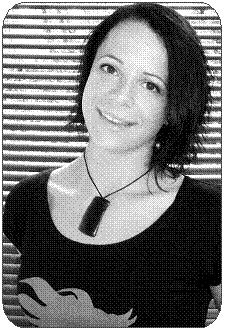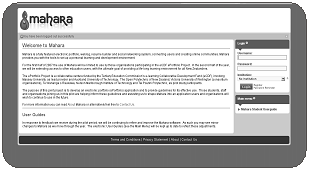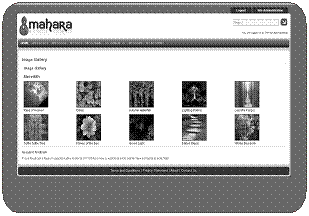Women in ICT - Tall Tales but True
Written by Penny Leach
First Published: 16 February 2007 VITTA Infonet 17.1 pp24-27 (License CC-BY-NC-ND)
Download PDF
After a few less than savoury events occured at a recent conference, hearing some drunken comments that offended me, and reading several articles on the subject recently, as well as straight out being asked about it, I think it's appropriate to comment. What is it like being a woman in IT? A programmer who yes, is actually a girl? Specifically in Open Source? Basically, what is it like being me?
Well, to begin with, I have to preface this by saying that as far as these things go, I have it pretty good. Even so, from time to time, it can be hard.
The first thing that happens when you're me is that the majority of the time, when I meet someone for the first time and I say I'm a programmer, I'm met with disbelief. "But .... you're a girl!", they say, shocked. I've had this at conferences, after making an intelligent technical remark about the subject matter. "Oh wow... I assumed you were just someone's girlfriend", they say. Note also, the use of the word 'just'. That in itself is the subject matter for another article. I digress.
Unfortunately, in response to comments like this, if I were to find myself in a heterosexual relationship with a male geek, and we were to attend the same conference, the last thing I would do is show any sort of physical affection to him. That would only reinforce in people's minds that I must be there as a partner. I also take great care to wear my name badge the entire time.
Even with these precautions, inevitably I have to reassure the male in question that yes, I do know about computers, and yes, I am a programmer, and no, I'm not just someone's girlfriend. So after that, you'd think the subject would be closed, right? But no.
The next thing that happens is that I have to prove it. This almost never happens to men. They say they're programmers? Fine. They're programmers. With women, there seems to be this lingering suspicion that it's not actually true. I don't just have to prove that I'm a programmer. I have to be a really really good programmer, otherwise I'll be dismissed as just a 'girl programmer'. Not a real one, because, implicitly, girls can't actually be real programmers, they're just this smaller, cuter, somehow pinker version of programmers.
This has been a huge issue for me. When I started, I was absolutely terrified to admit I didn't know something, for fear of being suspected of ignorance because I was a girl. It took me a long, long time to be able to be bad at something and ask for help. When starting to write in a new language, I would never say, "Hey, can you come over here and look over my shoulder and give me a hand?", I didn't want the (generally male) person I was asking for help to see what I was doing, in case I was doing it badly. I would always close my editor and try to word the question in such a way that it was abstract, and could be answered with an example on a piece of paper or by discussion. Pretty frustrating hey?
The truth is that until I felt proficient in something, I didn't want people to see it. Inevitably there's this learning curve when you're starting a new thing. Everyone does things strangely and badly when they're learning new things. But I just didn't want people to observe that learning curve.
I couldn't afford to let my guard down, even for a second, and show I was unsure of something The longer I work, and the more confident I am, the less this becomes an issue, although I still struggle with itfrom time to time. But for young girls who are just starting to get into programming, this can be a really big deal.
One way to solve it is mentoring. It doesn't necessarily have to be women mentors, although I think the option should be there for girls who want them. And there are lots of options out there. LinuxChix. Debian Women. Ubuntu Women. Gnome Women. KDE women. I know other FOSS projects out there are starting to run similar programs, and I think it's a really positive thing to do to help young women get involved with FOSS. For non FOSS programmers, I really don't know. I find it much easier to engage with an official mentor than a colleague. Certainly, a person at the other end of email or IRC is easier to deal with than someone sitting at the next desk. For me at least .
I have yet to be directly involved in the Google Summer of Code project, although I'm hoping to be a mentor this year for a project I work on. I don't know what the dynamic is going to be like between male and female mentors. I hope it's an option to request a woman mentor if you're a girl student. I'm sure Google will make it woman-positive.
Certainly, although I have discussed what it's like to be on the junior side, I have yet to touch on the flip side. While I'm by no means very senior, I've been in positions of leadership and seniority within certain projects, and I have definitely found that the younger, male members of the team find it very difficult to respect the fact that I know more than them. Recently I was allocated a more junior programmer to work on a particular small task for a few days. So I went to talk to him about it, explain the context and ask him when he would be available. His response? "File a bug". It wasn't a bug fix. "File a feature request". It's not a feature request. I ended up saying, "This isn't a bug. It's not a feature request. You've been allocated to work on this project by a company director, I'm asking you to do it". I'm 100% sure he wouldn't have acted this way to a male counterpart. I don't know how to deal with this, except with patience, which I'm not naturally very good at. I often deal with a level of disrespect that would absolutely not be shown to a male counterpart. I sigh and brush it off, but over time it can be incredibly draining. Occasionally, it gets me on a bad day, and I snap and make a snarky remark, where a tactful one would be better. Just like the people I work with, I'm not perfect.
Even so, it feels like I have to be bigger, better, meaner, scarier than my male equivalents. That can get pretty draining.Similarly to when I'm in a learning situation, this just comes back to having to justify myself as a programmer again and again, and I'm losing the tolerance for such games. I haven't found a solution for this yet. All I can do is prove myself and wait for people to accept that I do know what I'm talking about. Should I have to? No. Unfortunately, so far I haven't found a way to solve this.
An effect of these constant issues is that I have to be aware that I have defence mechanisms in place. Sometimes issues arise because I over-react to something that I'm insecure about. Somebody says something to me, an off-the-cuff comment, and I find myself getting hugely upset about it. It's up to me to question, why am I reacting this way? Should I really take offence? Is it as big as I think it is? Why am I reacting so badly? This feeds into the wider problem. At work the other day I was told by someone who was my superior that I had an inferiority complex. Well, it's true, in this area, I do have an inferiority complex. And that's something that I need to deal with, certainly. But it's also an issue that should be put into a broader context. Why does my inferiority complex exist? Perhaps it's because I spent years filtering negativity, disbelieving that I'm any good because I'm a girl, and having to prove myself over and over again. Perhaps the things that have caused my complex could have been managed better.
It's my own responsibility to question myself and analyse my own reactions to people. However, it is also really important that the people managing me, whether that's my employer, my mentor, or the community I'm working with, provide some sort of reassurance to counter all the negativity. There has to be balance. Too much negativity wears people out, they get tired. Too much positive reassurance causes inflated egos.
The next issue relates to how I present myself in face to face situations in the programming world. Tricky issue, but one that inevitably comes up. I was at a conference recently and getting ready for a party with a (non-geek) friend of mine who was the partner of one of the people I was there with. We both dressed up, put onpretty dresses and nice shoes. Some of the other people we were there with advised her against wearing the dress she had on, because, they said, people would be staring at her cleavage all night.
I found this absolutely infuriating. Were we expected to dumb down our femininity? Should we have to pretend to be men? Strap our breasts, while we were at it? The worst thing was, all our worst expectations were confirmed. The behaviour of three or four really stupid young men at that party was enough to ensure that women will be much more cautious when dressing for events at conferences.
I'm fairly stubborn and I find the idea of not being able to wear what I want incredibly offensive. I work in a casual office, jeans and t-shirts are pretty much standard uniform. But you know what? I like dressing up. I like to wear skirts and dresses, boots and heels, and sometimes I like to wear makeup. Does this compromise me as a programmer? Of course not. One day you might find me in sandals, baggy pants and a conference t-shirt, or a 'There's no place like 127.0.0.1' t-shirt, the next day I'll be wearing a suit. Just because I feel like it. So there.
But I'm pretty hardy and perfectly capable of ripping someone's head off if they disrespect me. The point is, I shouldn't have to.
Of course, on the flip side of people being rude to me, is the fact that I get hit on. A lot. I have a friend who writes fiction, and she wrote a story recently about a woman who's an Open Source programmer. The main character is loosely based on a combination of me, her, and another woman we know. She writes, "Part of the wonder of being you is that you are very small and very smart. It used to make you insecure and paranoid, but now you recognise that for a lot of the men at work and the kind of people you like to hang with, you are a kind of fetish object". Totally true of me. She goes on to say,"You spent a lot of your teenage years being picked up and thrown into bodies of water" Also true. In fact, the last conference I went to, in a drunk moment, I found myself being literally, physically picked up by large men. There were no bodies of water around, luckily.
I said to someone recently that I was one of the only woman programmers on a particular Open Source project in the world. His response? "I guess you get a lot of marriage proposals". My response is to deal with the attention by being incredibly prickly: I'm rude to people, I tease them, right back. I make 'yo momma' jokes and I swear, a lot. People are scared of me. My ex boyfriend used the word 'aggressive' to describe me,often. Is this a defence mechanism? Yes. Do I need it? Perhaps. The thing is, it's become ingrained. I sometimes relate experiences to people and they say, "Wow. No wonder you are the way you are". Am I a product of the environment I live in? Of course, aren't we all?
But you know what? I wouldn't trade this for the world. I love doing what I do. For the most part, I enjoy it immensely and it's hugely rewarding. To be honest, I think the satisfaction stems from the fact that I'm in the minority, I'm one of a small number of women world-wide doing Open Source. I'm doing what I love, it's hard, and I'm kicking ass at it. It's totally worth it.
But I would love more women to be involved. I love it that the proportion of women programmers at Open Source conferences is on the increase. I do love the fact that I'm part of a special group as well. We've come into a world that's traditionally male, we've challenged it, carved a place for ourselves and are busy doing amazing work against the odds. That's a wonderful thing to be part of.
So although I find certain parts of my day infuriating, although I have to deal with jerks and the arrogance of men, although I deal all the time with people's disbelief that I am who I am, and what's more, that I'm good at it, I encourage all women who might be thinking of getting involved to just do it. You'll probably need a thick skin. It'll probably be hard. But good things don't come cheap, hey?
Find your local LinuxChix. If there isn't one, start it! Meet other women who are doing Open Source, and see if you can find a mentor. If you're at the point where you can mentor someone else, do it!
Lastly, I will leave you with the thoughts from a woman more used to writing about the situation of women working in a field that has been traditionally dominated by men than I am, Virginia Woolf. Purely by coincidence I happened to be reading A Room of One's Own recently, and she used the words 'Unmitigated Masculinity' to describe the sense one has in Rome. I found those words very evocative, poignant. They brought to mind those cringe-inducing threads on Slashdot. Unmitigated masculinity might certainly be a good way to describe what being in a field of male geeks is like. But actually, I hope that's what it was like. Still is to a less extent, but the gap is narrowing. The field is changing, one woman geek at a time making a difference.

Penny Leach works for Catalyst IT in Wellington, New Zealand. Her focus is on sustainable Open Source applications for Education. She's a lead developer on Mahara, is a Moodle developer, has worked on Elgg and helped implement Eduforge, a project space for Open Source projects related to Education. Penny blogs at http://she.geek.nz.
Mahara
Established in 2006, Mahara is the result of a collaborative venture funded by New Zealand's Tertiary Education Commission's elearning Collaborative Development Fund (eCDF), involving Massey University, Auckland University of Technology, The Open Polytechnic of New Zealand and
Victoria University of Wellington.
Mahara is a fully featured electronic portfolio, weblog, resume builder and social networking system, connecting users and creating online communities. Mahara is designed to provide users with the tools to create a personal and professional learning and development environment.
Meaning 'think' or 'thought in Te Reo Maori, the name reflects the project collaborators' dedication to creating a usercentred lifelong learning and development application as well as the belief that technology solutions cannot be developed outside the considerations of pedagogy and policy.
The Mahara project lives at http://mahara.org


